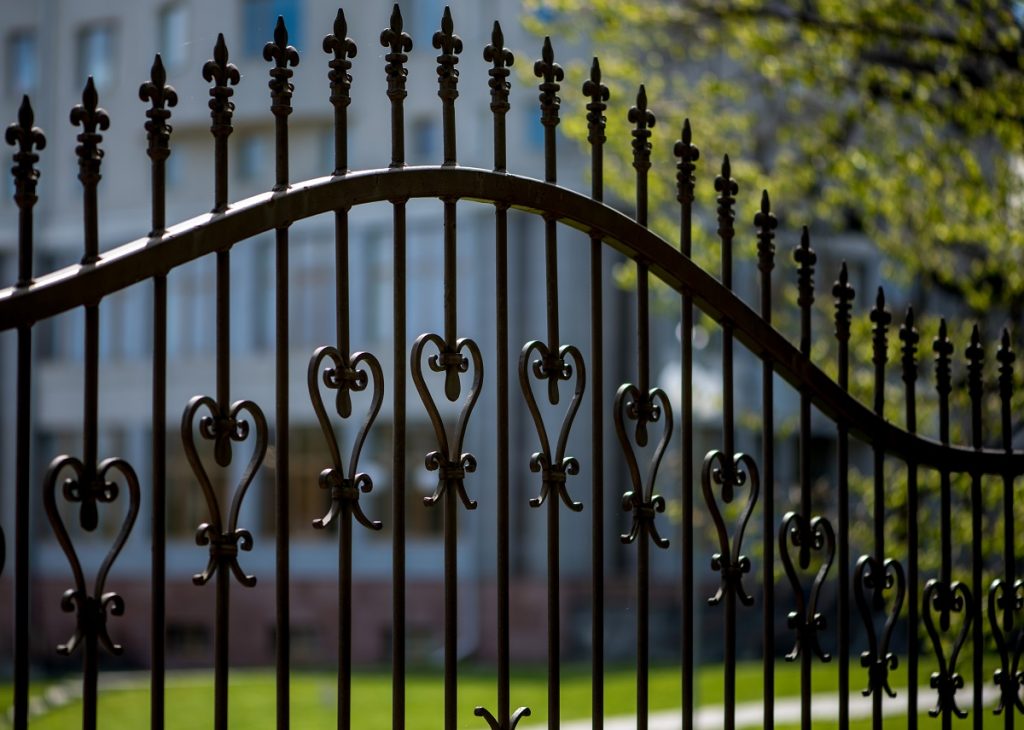Many homeowners love aluminum fences for their multiple benefits. Compared to wrought iron and steel, aluminum is cheaper to produce. But aluminum’s price does not compromise its quality.
Aluminum is durable and low-maintenance. Unlike wrought iron, aluminum will not oxidize and rust. Because of this, aluminum does not need as much repainting and coating as wrought iron. Best of all, aluminum is more weather-resistant than fences made of wood, steel, and wrought iron.
Because of their durability, aluminum fences are often used in utilitarian purposes as opposed to aesthetics. They provide the safety and reliability needed for creating barriers like pool fences to protect your child or your pets from a certain area of your yard. Whatever their use, you can count on your aluminum fences to perform well.
Are Aluminum Fences Totally Winter-Proof?

Even though aluminum fences possess such impressive properties, this does not mean that they can last without any maintenance. Aluminum fences can take damage from the weight of snow, displacement caused by shifting soil or gravel, and the constant freezing and thawing of precipitation.
Sure, aluminum fences are low maintenance. But low maintenance does not mean no maintenance. Aluminum fences require seasonal maintenance, so take some time from your weekend to winterize your fences for a hassle-free holiday.
Winterizing Aluminum Fences
The first thing to do is to check your fences. Check if the protective coating and paint are still in good condition. If they are not, you have to coat and repaint immediately to prevent exposed parts of your fence from rusting. If rust has already managed to set in, use a steel wire brush to remove the rust before coating and repainting the affected areas.
Make sure to also check the very bottom of your aluminum fences. The bottom part usually takes most of the damage due to lawn mowers and weed whackers. Check the fence’s hinges and hardware. If needed, enlist the help of a professional for a closer inspection and a more thorough examination. Your aluminum fence’s moving parts should be free of dirt and debris and sprayed with a rust inhibitor.
As mentioned earlier, aluminum fences can move due to fallen snow and damp soil. The repetitive freezing and thawing of fallen snow can shift and loosen the soil around fence posts, which can damage the foundation of your fence. If not addressed immediately, your fence can be easily knocked over by wind, which can cause breakage.
Before doing any repairs, prepare your fence by removing leaves, snow, ice deposits, and other debris. For this type of task, you should enlist the help of a professional installer who can properly install cement footings to secure your fence post. Improper installation of cement footings can defeat the purpose of the installation, and you might end up spending on installation services again.
Once your fence’s foundations have been fixed, continue your maintenance routine throughout the winter by shoveling snow away and checking for ice dams. If your fence is built around trees or shrubs, keep them trimmed to prevent falling branches from damaging your fence.
Although aluminum is a durable and reliable material, it still needs care and maintenance, especially in harsh, cold weather. Your aluminum fence will serve you for long years as long as you give it the care and maintenance it deserves.
